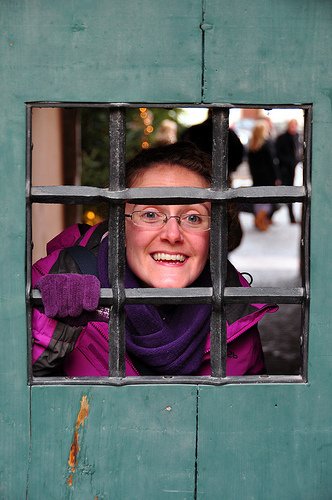My Growing Dissatisfaction with What3Words
Recently Geoff Lawton1 mentioned in his newsletter the global address service called What3Words 2. While I am a huge fan of Geoff and have learned a lot from him, I don't like What3Words
What Is What3Words?
When I first heard about What3Words a couple years ago I loved the idea. It is an addressing scheme that divides the entire world into a grid made of 3 meter squares. This means that the desk I'm typing this at has an address (e.g. teach.defend.remote), and the shed in the back yard also has an address (reply.bunch.idea). You can tell someone exactly where you want to meet, or where you buried your treasure chest, with three simple words. The three words are much easier to remember and communicate than GPS coordinates.
So What Is Wrong With What3Words?
The first thing is that it is not intuitive. Notice in the example locations above while they are relatively close to one another you cannot tell. So when someone gives you an address you have no idea if it is around the corner or in Mongolia. You have to plug it into the What3Words app to know where it is. This increases your dependence on mapping software and decreases your ability to get around without it. What3Words has stated that this is for accuracy and error detection purposes. I can see their point. It would be easier to get confused if all the addresses in the neighborhood started with apple.pretty. Therefore the addresses are random. Which also, conveniently, means that if you use What3Words you are locked into a patented, copyrighted, closed system. What3Words has proven that they intend to keep it that way3.

image source
Which brings us to the second thing that is wrong with What3Words. It is a closed system. I second the opinion of OpenStreetMaps here:4
what3words is fairly simple from a software point of view, and is really more about attempting establish a standard for location look-ups. It will only succeed through the network effect of persuading many people to adopt and share locations. If it does succeed, then it also succeeds in "locking in" users into the system which they have exclusive monopoly over.
The modern norm for any new simple standard, is to specify it openly and release decoding/encoding implementations as open source. This is something many people have come to expect, and to insist upon for new simple standards. This is a lesson tech experts and tech users have learned time and time again, with negative experiences of "lock-in" when private companies succeed in driving adoption of their closed systems. As such, you will tend to find people not only refuse to adopt a closed standard like what3words, but also strongly advise others not to adopt it!
Alternatives
The good news is that there a a couple alternatives that are open source and more intuitive. My favorite is Xaddress which gives two words and then a number, e.g. 7782 New Acknowledged. The number and first word are similar in local regions.
While What3Words is a cool concept it is not a very cool company. The more I learn about the company, the more I dislike it. So, sorry Geoff, but I'll be supporting open source projects, like Xaddress, instead.
Links and Resources
1: http://www.geofflawtononline.com/
2: http://what3words.com/
3: https://github.com/github/dmca/blob/master/2016/2016-07-05-what3words.md
4: https://wiki.openstreetmap.org/wiki/What3words
I noticed two problems with using Xaddress.
The first is that at least some number-word-word combination occur in more than one country-region; they are not unique. Related is that the country and region seem to be required, so the minimum length of the address is five items instead of three.
The second one is that the Xaddress addresses are accurate only to four decimal places, which is a lot coarser than what3words's 3 m x 3 m grid squares.